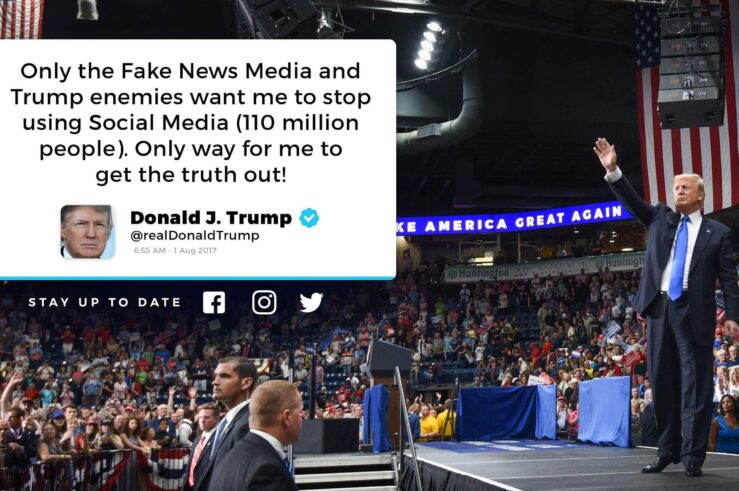Showing archive for: “Vertical Restraints & Self-Preferencing”
Making Sense of the Google Android Decision (part 3): Where is the Harm?
This is the third in a series of TOTM blog posts discussing the Commission’s recently published Google Android decision (the first post can be found here, and the second here). It draws on research from a soon-to-be published ICLE white paper. (Comparison of Google and Apple’s smartphone business models. Red $ symbols represent money invested; ... Making Sense of the Google Android Decision (part 3): Where is the Harm?
We Should Not Have Our Constitution Redesigned by Antitrust Lawyers
[TOTM: The following is the sixth in a series of posts by TOTM guests and authors on the politicization of antitrust. The entire series of posts is available here.] This post is authored by Kristian Stout, Associate Director at the International Center for Law & Economics. There is a push underway to punish big tech ... We Should Not Have Our Constitution Redesigned by Antitrust Lawyers
Mr. Watson, I Want to See You … About Vertical Mergers and Price Regulation
Jonathan B. Baker, Nancy L. Rose, Steven C. Salop, and Fiona Scott Morton don’t like vertical mergers: Vertical mergers can harm competition, for example, through input foreclosure or customer foreclosure, or by the creation of two-level entry barriers. … Competitive harms from foreclosure can occur from the merged firm exercising its increased bargaining leverage to ... Mr. Watson, I Want to See You … About Vertical Mergers and Price Regulation
Does Apple’s “Discrimination” Against Rival Apps in the App Store harm Consumers?
A spate of recent newspaper investigations and commentary have focused on Apple allegedly discriminating against rivals in the App Store. The underlying assumption is that Apple, as a vertically integrated entity that operates both a platform for third-party apps and also makes it own apps, is acting nefariously whenever it “discriminates” against rival apps through ... Does Apple’s “Discrimination” Against Rival Apps in the App Store harm Consumers?
The District Court’s FTC v. Qualcomm Decision Rests on Impermissible Inferences and Should Be Reversed
Last week the International Center for Law & Economics (ICLE) and twelve noted law and economics scholars filed an amicus brief in the Ninth Circuit in FTC v. Qualcomm, in support of appellant (Qualcomm) and urging reversal of the district court’s decision. The brief was authored by Geoffrey A. Manne, President & founder of ICLE, and ... The District Court’s FTC v. Qualcomm Decision Rests on Impermissible Inferences and Should Be Reversed
FTC v. Qualcomm: A Case of Regulatory Capture?
There is little doubt that the decision in May 2019 by the Northern District of California in FTC v. Qualcomm is of historical importance. Unless reversed or modified on appeal, the decision would require that the lead innovator behind 3G and 4G smartphone technology renegotiate hundreds of existing licenses with device producers and offer new ... FTC v. Qualcomm: A Case of Regulatory Capture?
The Third Circuit’s Oberdorf v. Amazon opinion offers a good approach to reining in the worst abuses of Section 230
[Note: A group of 50 academics and 27 organizations, including both myself and ICLE, recently released a statement of principles for lawmakers to consider in discussions of Section 230.] In a remarkable ruling issued earlier this month, the Third Circuit Court of Appeals held in Oberdorf v. Amazon that, under Pennsylvania products liability law, Amazon ... The Third Circuit’s Oberdorf v. Amazon opinion offers a good approach to reining in the worst abuses of Section 230
There’s nothing “conservative” about Trump’s views on free speech and the regulation of social media
Yesterday was President Trump’s big “Social Media Summit” where he got together with a number of right-wing firebrands to decry the power of Big Tech to censor conservatives online. According to the Wall Street Journal: Mr. Trump attacked social-media companies he says are trying to silence individuals and groups with right-leaning views, without presenting specific ... There’s nothing “conservative” about Trump’s views on free speech and the regulation of social media
In Apple v Pepper, SCOTUS leaves home without its Amex
It might surprise some readers to learn that we think the Court’s decision today in Apple v. Pepper reaches — superficially — the correct result. But, we hasten to add, the Court’s reasoning (and, for that matter, the dissent’s) is completely wrongheaded. It would be an understatement to say that the Court reached the right ... In Apple v Pepper, SCOTUS leaves home without its Amex
Elizabeth Warren wants to turn the internet into a literal sewer (service)
Near the end of her new proposal to break up Facebook, Google, Amazon, and Apple, Senator Warren asks, “So what would the Internet look like after all these reforms?” It’s a good question, because, as she herself notes, “Twenty-five years ago, Facebook, Google, and Amazon didn’t exist. Now they are among the most valuable and ... Elizabeth Warren wants to turn the internet into a literal sewer (service)
Calling into Question the FTC’s Theory of the Case in FTC v. Qualcomm
This post does not attempt to answer the question of what the court should decide in FTC v. Qualcomm because we do not have access to the information that would allow us to make such a determination. Rather, we focus on economic issues confronting the court by drawing heavily from our writings in this area: ... Calling into Question the FTC’s Theory of the Case in FTC v. Qualcomm
Doing double damage: The German competition authority’s Facebook decision manages to undermine both antitrust and data protection law
The German Bundeskartellamt's Facebook decision is unsound from either a competition or privacy policy perspective, and will only make the fraught privacy/antitrust relationship worse.







